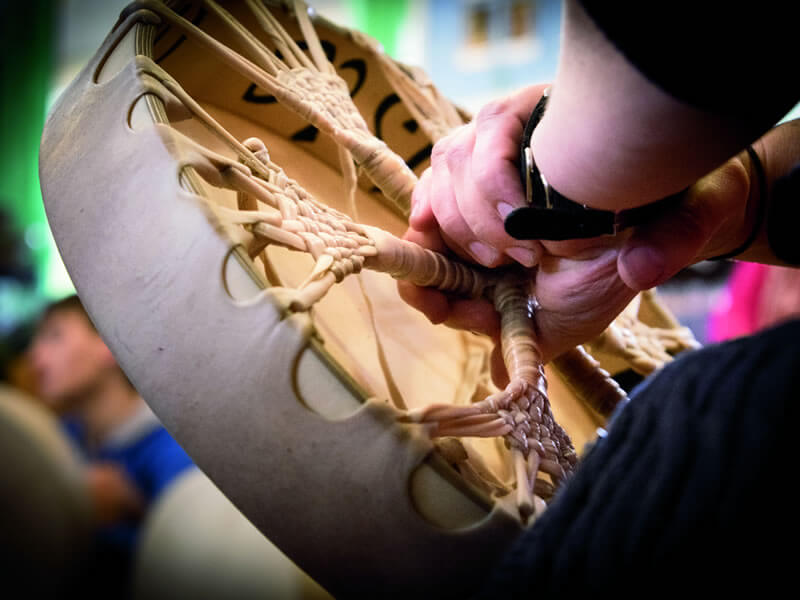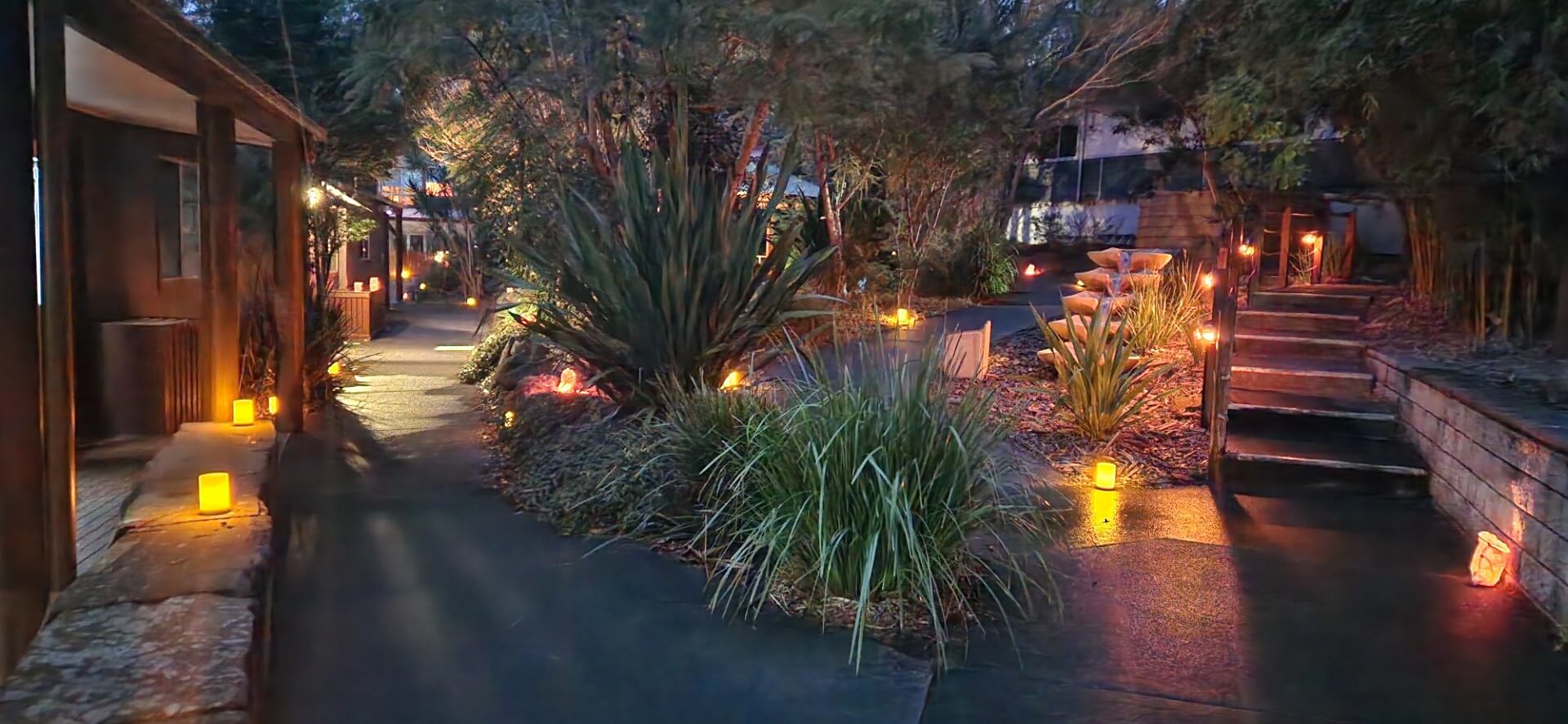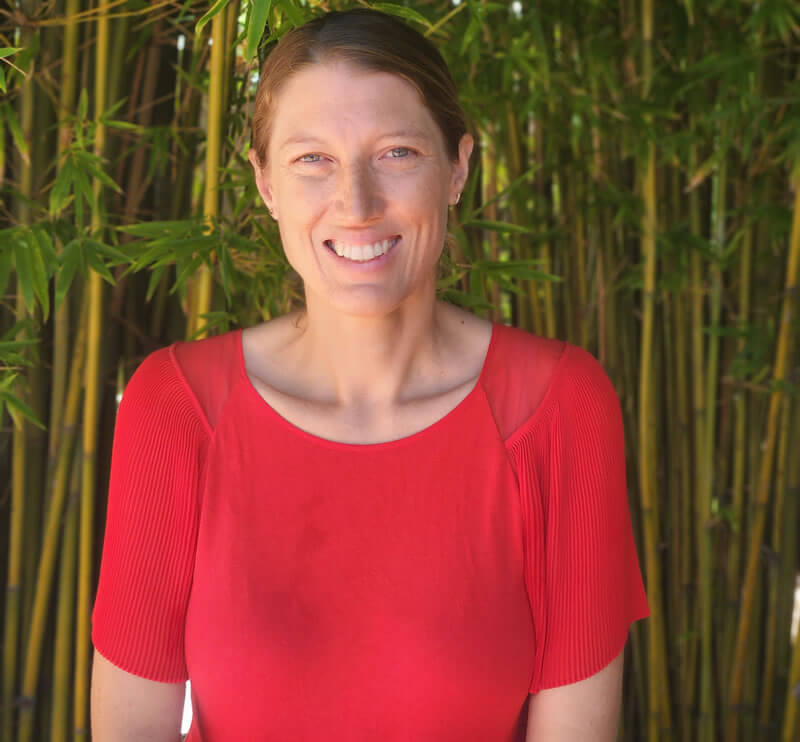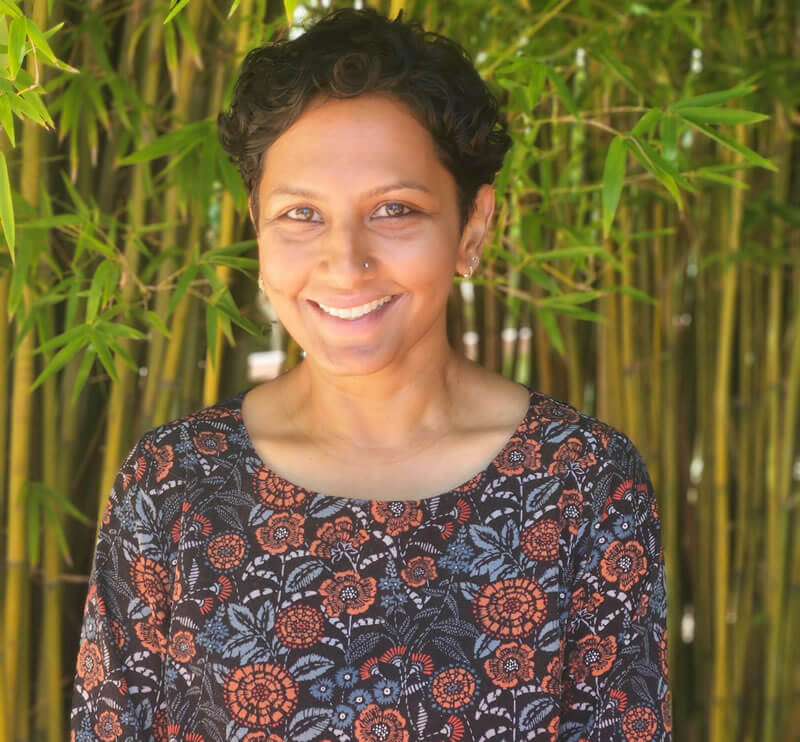Wellbeing
Human-centred education
The power of relationships
Warm, caring relationships between students and teachers and among the students are at the heart of Steiner education. Our school nurtures supportive and close connections with teachers and strong bonds of friendship between students. A sense of belonging, of being seen, accepted and celebrated are central to the experience of wellbeing for our students. They are cared for within a responsive school community situated in a calm, beautiful natural environment.


Gratitude and service to others
Gratitude is closely linked to various aspects of wellbeing, including social, emotional, and psychological dimensions. In experiencing appreciation, we are more likely to look beyond ourselves and give to others. We actively seek opportunities for our students to serve our local community and beyond. We regularly contribute to cleaning local waterways. Our Year 9 students have participated in tending to the biodynamic gardens and working with people with disabilities at Inala Steiner School in Sydney, while our Year 10 students engage in service within Aboriginal communities in the Northern Territory as part of their annual camp. The International Baccalaureate Diploma Programme explicitly fosters community service, promoting the development of global citizenship and social responsibility.

Wellbeing partnership with families
We highly value the partnership of families and teachers. When we work together, the journey of our young students through our school becomes more stable, healthy and cohesive.
Here are ten ways we work with you to support your child’s development:

Nutrition
Eating a healthy breakfast at the start of the day is important. We recommend that your child brings fresh, healthy, unprocessed foods, with minimal or no packaging, to school. A screen-free evening meal together around the dinner table is a great opportunity to share what happened during the day.

Sleep is vital to our wellbeing. Not getting enough sleep significantly impacts students’ ability to consolidate memories, learn, and feel their best at school. Avoid screen time exposure for at least one hour before bedtime. Set an evening alarm so that ‘time to go to bed’ is a regulated habit.
Regular, healthy sleep

The links between regular exercise for physical and mental health are well acknowledged. We recommend that you instil regular habits to get your child moving and maintain good fitness levels.
Regular exercise

Staying connected to communities such as Scouts, surf-lifesaving, drama clubs, etc helps young people ‘find their tribe’ and feel a sense of belonging. Following passions and working towards high standards, eg, with a musical instrument or sport, helps students sustain commitment and build resilience.
Hobbies/Interests outside of school

Nature helps us all connect to our centre and ‘reset’. Getting outdoors can release tension, is rejuvenating and gives us a sense of belonging in a big wide world. Even a regular walk can be an opportunity to notice the beauty in everyday moments.
Time in nature

Encourage your child to engage their imaginations in the world of stories, ideally as a daily habit. It helps them maintain deep focus, improves their literacy, instils empathy, and broadens their horizons.
Regular reading of books

Digital technologies are designed to facilitate addiction. Social media design cultivates a fear of missing out. So, we ask that you carefully monitor the content of what your child is exposed to as well as their time spent online. Ideally, screen usage in the home should take place in a public space with the screen facing outwards. We recommend that families have adequate safety filters on devices at home.
Limited screen time

As students grow older, the demands of home learning step up. Families can facilitate each new stage by creating an orderly place to study, free from noise and other distractions. Please make sure your child organises and packs their bag for school the night before. High school students should use their school diary and monitor their assessment task calendar.
Study and organisation habits

We are here for our students and families. We ask that you communicate with our teachers when needed. Please attend all parent-teacher evenings and student-led conferences.
Communication
Wellbeing support
In the event of wellbeing concerns, effective communication channels are established between students, parents, guardians, and staff. Collaboratively, we develop support plans tailored to each student’s needs. Our school offers comprehensive student wellbeing services, overseen by two qualified psychologists serving as Wellbeing Officers.

Clarissa Tebbatt
Clarissa Tebbatt is a registered psychologist and has experience working in a variety of schools. She is passionate about student wellbeing and provides short-term individual counselling sessions and group sessions during the school day on Wednesdays and Thursdays.

Arthi Chicken
Arthi Chicken is a Registered Clinical Counsellor with PACFA who has worked with children, adolescents, and their families for over ten years in schools and private practice in Australia and the UK. She is available on Mondays and Tuesdays.




